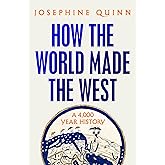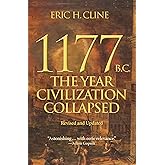
Amazon Prime Free Trial
FREE Delivery is available to Prime members. To join, select "Try Amazon Prime and start saving today with FREE Delivery" below the Add to Cart button and confirm your Prime free trial.
Amazon Prime members enjoy:- Cardmembers earn 5% Back at Amazon.com with a Prime Credit Card.
- Unlimited FREE Prime delivery
- Streaming of thousands of movies and TV shows with limited ads on Prime Video.
- A Kindle book to borrow for free each month - with no due dates
- Listen to over 2 million songs and hundreds of playlists
Important: Your credit card will NOT be charged when you start your free trial or if you cancel during the trial period. If you're happy with Amazon Prime, do nothing. At the end of the free trial, your membership will automatically upgrade to a monthly membership.

Download the free Kindle app and start reading Kindle books instantly on your smartphone, tablet, or computer - no Kindle device required.
Read instantly on your browser with Kindle for Web.
Using your mobile phone camera - scan the code below and download the Kindle app.



 Audible sample
Audible sample Follow the author
OK
The Invention of Prehistory: Empire, Violence, and Our Obsession with Human Origins Hardcover – April 2, 2024
Purchase options and add-ons
“[A]n incisive and captivating reassessment of prehistory . . . In lucid prose, Geroulanos unspools an enthralling and detailed history of the development of modern natural science. It’s a must-read.” ―Publishers Weekly, starred review
“An astute, powerfully rendered history of humanity.” ―Kirkus Reviews, starred review
An eminent historian tells the story of how we came to obsess over the origins of humanity―and how, for three centuries, ideas of prehistory have been used to justify devastating violence against others.
The very idea that there was a human past before recorded history only emerged with the Enlightenment, when European thinkers began to reject faith-based notions of humanity and history in favor of supposedly more empirical ideas about the world. From the “state of nature” and Romantic notions of virtuous German barbarians to theories about Neanderthals, killer apes, and a matriarchal paradise where women ruled, Geroulanos captures the sheer variety and strangeness of the ideas that animated many of the major thinkers of the eighteenth and nineteenth centuries, including Jean-Jacques Rousseau, Charles Darwin, and Karl Marx. Yet as Geroulanos shows, such ideas became, for the most part, the ideological foundations of repressive regimes and globe-spanning empires. Deeming other peoples “savages” allowed for guilt-free violence against them; notions of “killer apes” who were our evolutionary predecessors made war seem natural. The emergence of modern science only accelerated the West’s imperialism. The Nazi obsession with race was rooted in archaeological claims about prehistoric IndoGermans; the idea that colonialized peoples could be “bombed back to the Stone Age” was made possible by the technology of flight and the anthropological idea that civilization advanced in stages.
As Geroulanos argues, accounts of prehistory tell us more about the moment when they are proposed than about the deep past―and if we hope to start improving our future, we would be better off setting aside the search for how it all started. A necessary, timely, indelible account of how the quest for understanding the origins of humanity became the handmaiden of war and empire, The Invention of Prehistory will forever change how we think about the deep past. 101 images
- Print length512 pages
- LanguageEnglish
- PublisherLiveright
- Publication dateApril 2, 2024
- Dimensions6.4 x 1.6 x 9.3 inches
- ISBN-101324091452
- ISBN-13978-1324091455
Discover the latest buzz-worthy books, from mysteries and romance to humor and nonfiction. Explore more
Frequently bought together

Customers who viewed this item also viewed
From the Publisher



Editorial Reviews
Review
― Jennifer Szalai, New York Times
"With careful attention to our collective accounting of our prehistoric roots, Geroulanous considers what is revealed about our present when we write about our past."
― The New Yorker
"In The Invention of Prehistory, a thorough and sensitive work of reckoning, Geroulanos shows that both wistful and disdainful depictions of the past have been used to justify atrocities in the present... it complicates the increasingly widespread narrative that paints pining for the past as an exclusively conservative pastime.... As Geroulanos so decisively demonstrates, many groups throughout history―not least the Nazis―"relied on theories of origins as a justification to rule and to kill"."
― Becca Rothfeld, Washington Post
"The strength of Mr. Geroulanos’s book lies in its breadth. It ranges easily from the pseudoscience of Freud and Jung (for both of whom idiosyncratic notions of prehistory were important) to Nazi obsessions with origins, Unesco debates about racism and modern feminist strains of social theory. Mr. Geroulanos has a good ear for prose and a knack for defamiliarizing expressions that should seem stranger: His pages on the phrase ‘the thin veneer of civilization,’ for example, are extraordinary. The book is lavishly and thoughtfully supplied with illustrations that enrich the discussion. . . . The problem of prehistory remains enormous, indeed, and it is humbling to be reminded of its abuses. Mr. Geroulanos has done so vividly."
― Kyle Harper, Wall Street Journal
"This brilliant and sardonic text takes readers through the farcical, cringe-worthy historiography of prehistoric humanity, in which many terrible philosophies have come to many terrible conclusions.... The Invention of Prehistory makes for essential―and disturbingly relevant―reading."
― Lit Hub, “noteworthy nonfiction of 2024”
"[A] myth-busting polemic… Geroulanos doesn’t think all prehistory is bad or exclusionary; he objects only to theories that claim certainty and seek legitimacy from an essentially unknowable past."
― Oliver Cussen, London Review of Books
"[O]riginal and exciting . . . dazzling . . . ends with an impassionate call for radical modesty. It is time for us to admit that we simply do not know the deep past and cannot comprehend the ‘ecstasies and feelings and terrors’ that our predecessors experienced. This recognition will then allow us to root advocacy for solidarity and equality on firmer grounds."
― Udi Greenberg, New Republic
"Geroulanos has done a redoubtable job of showing the ways in which the study of the human past has been deformed by prejudice, mythmaking, and outright racism."
― Jacob Mikanowski, Chronicle of Higher Education
"There was, as Geroulanos nicely shows, never unanimity among the developing sciences about which of them was best suited to investigate or conceptualize prehistoric people...Geroulanos suggests that despite their varied approaches, these overlapping investigations mostly sharpened the spearhead of Western colonization."
― Jacobin
"The Invention of Prehistory is less about life thousands of years ago, and more about how, over the past 300 years or so, modern societies have bent the distant past towards their own ends… this is a work that makes you wonder how much we actually know―and how much we just project."
― Peter Hoskin, Prospect (UK), ‘Books of the Year 2024: History’
"An incisive and captivating reassessment of prehistory . . . In lucid prose, Geroulanos unspools an enthralling and detailed history of the development of modern natural science. It’s a must-read."
― Publishers Weekly, starred review
"Stunningly comprehensive... The author clearly shows how Eurocentric standards still prevail in how we organize history, and he concentrates much of his prodigious research on the power of language in determining our “epic myths”―e.g., the use of the term primitive in characterizing Indigenous peoples and thus justifying exploitation and extermination.... Consistently illuminating... Geroulanos effectively exposes how little separates modern humans from the idea of the 'barbarian.' An astute, powerfully rendered history of humanity."
― Kirkus Reviews, starred review
"In this remarkable and enlivening study, Stefanos Geroulanos traces the development of our modern fascination with humanity’s deep past, and lays out that fascination’s deadly costs."
― Amia Srinivasan, author of The Right to Sex: Feminism in the Twenty-First Century
"Stefanos Geroulanos reveals how the quest for human origins emerged from the imperial mandate―to possess the earth and control its peoples. His subtle, passionate book steers us away from an unreal past and toward an equal, peaceful, and sustainable future for all."
― Merve Emre, author of The Personality Brokers: The Strange History of Myers-Briggs and the Birth of Personality Testing
"In a brilliant masterstroke, Stefanos Geroulanos turns the tables on those shining a lamp on human origins, documenting how they have always held up a mirror to themselves and their own times. . . . [T]his magnificent book reminds us that inquiry is always political―and that the continuing fashion of exploring the birth of civilization and the dawn of everything has the darkest roots."
― Samuel Moyn, author of Humane: How the United States Abandoned Peace and Reinvented War
"The idea that some people have stayed behind in a savage state while others have ascended to civilization has caused and continues to cause immense suffering for those supposed to be human animals, bombed back to the Stone Age or otherwise disappeared from history. Covering an enormous territory from Rousseau to Wakanda, displaying a firework of erudition, written with verve, The Invention of Prehistory will be a milestone on the path to a less destructive relation to the deep past."
― Andreas Malm, author of How to Blow Up a Pipeline
"Nimbly moving across a great expanse of space and time, The Invention of Prehistory dismantles our most widely accepted ideas about the origins of humanity. This is intellectual history as it should be written: serene in its mastery of intransigent material, yet endlessly provocative in argument, and ultimately fatal to long-cherished assumptions and prejudices."
― Pankaj Mishra, author of Bland Fanatics: Liberals, Race, and Empire
About the Author
Product details
- Publisher : Liveright (April 2, 2024)
- Language : English
- Hardcover : 512 pages
- ISBN-10 : 1324091452
- ISBN-13 : 978-1324091455
- Item Weight : 2.31 pounds
- Dimensions : 6.4 x 1.6 x 9.3 inches
- Best Sellers Rank: #121,552 in Books (See Top 100 in Books)
- #39 in Assyria, Babylonia & Sumer History
- #97 in Archaeology (Books)
- #260 in History of Civilization & Culture
- Customer Reviews:
About the author

Stefanos Geroulanos is the Executive Director of the Remarque Institute and a Professor of History at New York University.
His new book 'The Invention of Prehistory: Violence, Empire, and our Obsession with Human Origins' is forthcoming in April 2024.
Geroulanos is the author of 'Transparency in Postwar France' (2017), 'The Human Body in the Age of Catastrophe,' (2018, with Todd Meyers), 'An Atheism that is not Humanist Emerges in French Thought' (2010), and other books. He has coedited several books, including 'Power and Time' (2020), 'The Scaffolding of Sovereignty' (2017), and 'The Routledge Handbook in the History and Sociology of Ideas' (2023). He is also a Co-Executive Editor of the Journal of the History of Ideas, and the co-translator of two books by Georges Canguilhem.
For more info, see
https://www.stefanos-geroulanos.com/
https://as.nyu.edu/faculty/stefanos-geroulanos.html
Customer reviews
Customer Reviews, including Product Star Ratings help customers to learn more about the product and decide whether it is the right product for them.
To calculate the overall star rating and percentage breakdown by star, we don’t use a simple average. Instead, our system considers things like how recent a review is and if the reviewer bought the item on Amazon. It also analyzed reviews to verify trustworthiness.
Learn more how customers reviews work on AmazonCustomers say
Customers find the book thought-provoking, with one noting its extremely well-researched content. They consider it an exceptional read.
AI-generated from the text of customer reviews
Select to learn more
Customers find the book thought-provoking, appreciating its interesting perspective and well-researched approach.
"An insightful, well sourced overview not just of theories of prehistory but the motives behind them...." Read more
"This work presents an interesting perspective on how western cultural biases have shaped the way prehistory and contemporary indigenous people have..." Read more
"...Two stars for being extremely well researched." Read more
"a necessary book highlighting the myths we use to justify ourselves...." Read more
Top reviews from the United States
There was a problem filtering reviews. Please reload the page.
- Reviewed in the United States on May 18, 2024It covers the idea of human origins from Rousseau to today, and laments the failure of seeing those myths as reflections of what we look like in the mirror: How else could such a brutal civilization self justify itself? I would have liked to see him draw a line to Kant, who attempted to make Rousseau more rigorous, and in the process, answers many of the questions on which the author concludes, but hat would have been a different book. .
- Reviewed in the United States on February 3, 2025An insightful, well sourced overview not just of theories of prehistory but the motives behind them. The author does occasionally wander, and his own biases and views bubble up from time to time, but he always has at least one hand on the reins. Relevant, thought provoking stuff
- Reviewed in the United States on July 1, 2024It's well worth spending time in this book. For anyone interested in artificial intelligence, the book explains how overly convenient it is to invent explanations of perceived realities in which to live. Each of us tends to create such realities for systems of belief. We search for meaning when there isn't any complete justification in conclusions.
- Reviewed in the United States on November 4, 2024It may sound ridiculous to be against a book one never read, and I was thinking of buying it until I came to these lines in the write-up:
"The very idea that there was a human past before recorded history only emerged with the Enlightenment"
I think he means people began to move away from religious/mythical creation stories.
"Yet as Geroulanos shows, such ideas became, for the most part, the ideological foundations of repressive regimes and globe-spanning empires. Deeming other peoples “savages” allowed for guilt-free violence against them; notions of “killer apes” who were our evolutionary predecessors made war seem natural."
Another Enlightenment-bashing book, apparently. It's not that some of these ideas aren't stupid, and the evil people didn't use them, but we have had repressive regimes and global-spanning empires long before the Enlightenment (Sumerian Empire, Egyptian Empire, Hittite Empire, Roman Empire, Persian Empire, Incan Empire, Aztec Empire, Malian Empire, Zulu Kingdom, Khwarazmian Empire, Mongol Empire, Chinese Empire, Mughal Empire, and varied and sundry religious crusades) and none of these people needed modern ideas of prehistory to justify their behavior to themselves. Deus vult! in one language or another was a popular idea. Many of them told themselves that they were doing the (surviving) populations a service by introducing them to the correct god, or the best civilization and culture, just like conquerors after the Enlightenment.
After reading some of the other reviews, If I read this at all, it will be after the hold lists go down.
- Reviewed in the United States on November 23, 2024An exceptional read !
- Reviewed in the United States on June 1, 2024This work presents an interesting perspective on how western cultural biases have shaped the way prehistory and contemporary indigenous people have been portrayed in science.
- Reviewed in the United States on April 27, 2024I found this book most interesting. As one who majored in Anthropology in two halves around my military service at the end of the 1960's at the moment when so much of what we currently know or suspect about our crossing of the boundary between non-quite human and human was coming into focus and beginning to become mainstream, I have also read much of the work by the men and women that the author describes. He is certainly right about much of the harm our various notions of who we think we are have done, but I question his assertions that the attempt to understand our deep past, however faulty and incomplete as that study may sometimes be, are of little value. The child is and must be father to the man. Whatever we brought with us across that distant and unfathomable boundary is with us still, or else we would not remain all that we are; the animal, the poet, the builder, and the would-be God.
- Reviewed in the United States on May 26, 2024We need to forget prehistory and focus on what we have done and are doing NOW to us and our planet 10AM















